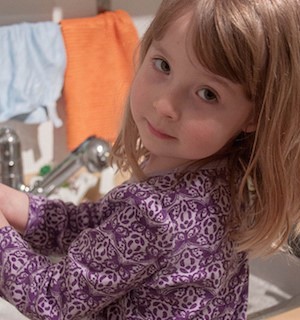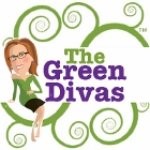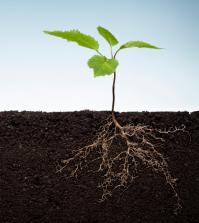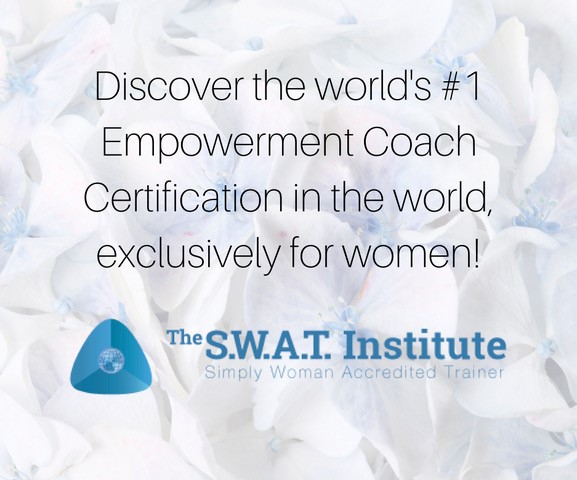- Mothering in a Fractured TimePosted 16 hours ago
- Beneath the Surface: Revealing Life’s Goals nurtured from a Spiritual SeedPosted 4 days ago
- How We Kept Marital Peace while Traveling the World with Our KidsPosted 2 weeks ago
- How I Coped with Feeling Lost in a Changing SocietyPosted 2 weeks ago
- The Unexpected Liberation of a Butt DialPosted 1 month ago
- Why is France making abortion a constitutional right?Posted 2 months ago
7 Toxic Cleaning Ingredients to Avoid - Simply Woman

By The Green Divas from our partners at NaturallySavvy.com
It’s time for some spring cleaning, right?! Make sure you know what to avoid for a safe cleaning routine.
The EPA estimates that the air inside our homes can be as more polluted than the air outside, and some of that pollution comes from our cleaning products. In fact, in their Guide to Healthy Cleaning database, the Environmental Working Group found that a full half of the cleaning products on the market contain ingredients known to harm our lungs.
So what’s exactly in these products—and what can we do to make them safer?
I share some of my non-toxic spring cleaning advice in this episode of Green Divas at Home. Listen up, then read on for my seven shortcuts to healthier cleaning… Listen to the podcast here.
Indoor air pollution can lead to serious health problems like allergies and asthma; childhood asthma rates are now at epidemic levels, with nearly seven million children affected, according to the Centers for Disease Control and Prevention.
If you’re buying cleaners, here are seven toxic ingredients to avoid:
1. Anything that bears a poison label, especially those cleaners that contain odorless, sweet-tasting diethylene glycol, found in window cleaners.
2. Stay away from formaldehyde-based deodorizers; it’s been linked to cancer.
3. Nix the triclosan, which has been shown to reduce immunity and increase antibiotic-resistant bacteria.
4. Don’t buy products that contain perfume or fragrance, which is a blanket term for tons of chemicals linked to allergies, among other problems.
5. Stay away from phenols in disinfectants—especially toilet bowl cleaners—which are bad to breathe.
6. Petroleum solvents in floor cleaners can damage your mucous membranes.
7. Spot removers containing perchloroethylene—the same stuff your dry cleaner uses—can cause liver and kidney damage.
Read more about chemical-free cleaners you can make at home
Chances are, if you see one of these on a cleaning product, other toxic chemicals will follow—but they might not be listed on the label. That’s because regulations don’t require manufacturers to list exactly what ingredients are in household cleaners because those formulations are considered “trade secrets.” (Did you know that?!? Crazy, right?)
Because of this, I’ve spent the last few years creating a homemade arsenal of cleaners concocted from olive oil, baking soda and vinegar. But sometimes, I get lazy and grab a cleaner marked “green” or “natural,” trusting the brands that I’m familiar with.
Until I discovered the Environmental Working Group’s Guide to Healthy Cleaning. The findings are surprising! One Lysol product has a good rating, while some brands that I had in my cupboards ranked poorly. One of my favorites, Earth Friendly Parsley Surface Cleaner got a “C” because they didn’t disclose their biodegradable, coconut-based surfactants and because there’s no data on the parsley extract that makes up their signature scent. Babyganics, which makes this awesome triclosan- and alcohol-free hand sanitizer also got dinged because they don’t print formulations on their labels, although they are fully disclosed online. These products both get an “A” in my book.
So how does EWG determine their ratings?
The organization’s scientists looked at more than 2,000 cleaners from nearly 200 brands and including more than 1,000 ingredients, then graded products based on the following criteria:
1. Hazardous ingredients that pose threats to human health.
2. Little or no specific ingredient information on the label.
3. Contains ingredients restricted in some states and the European Union.
4. Products that release volatile chemicals.
EWG contends that manufacturers can up their ratings by disclosing their ingredients and have said that since the Guide was released in 2012, many have come forward with better ingredient information. I take that to mean that the Cleaners Database is a work in progress.
I believe that the database could do for household cleaners what EWG’s Skin Deep Cosmetics Database did for the personal care industry in 2004. Now also available as a smartphone app, Skin Deep provides consumers with a searchable database to help them make informed decisions about what they put on their bodies. In the case of sunscreen, for example, Skin Deep’s annual updates really changed the industry for the better: In 2010, EWG approved only one in 12 sunscreens because of health concerns associated with their formulations; last year, they approved three out of four (like Goddess Garden Organic sunscreen).
Read more about what’s in sunscreen
This type of market shift really proves that informed consumers can change manufacturing—if we did it with sunscreen, we can do it with cleaning products, too!
Bonus:
Spring is also a great time to get your garden in order, check out this Green Divas in the Garden podcast for some great tips on what to get done this spring… Listen to the podcast here.
Written by Green Diva Rachel (Rachel Lincoln Sarnoff) for The Green Divas.
 The Green Divas share low-stress ways to live a deeper shade of green through a weekly radio show, podcasts, videos and blog posts. Working with talented partners and credible sources like myEARTH360 the Green Divas produce content on a variety of topics relating to a healthy green lifestyle.
The Green Divas share low-stress ways to live a deeper shade of green through a weekly radio show, podcasts, videos and blog posts. Working with talented partners and credible sources like myEARTH360 the Green Divas produce content on a variety of topics relating to a healthy green lifestyle.







